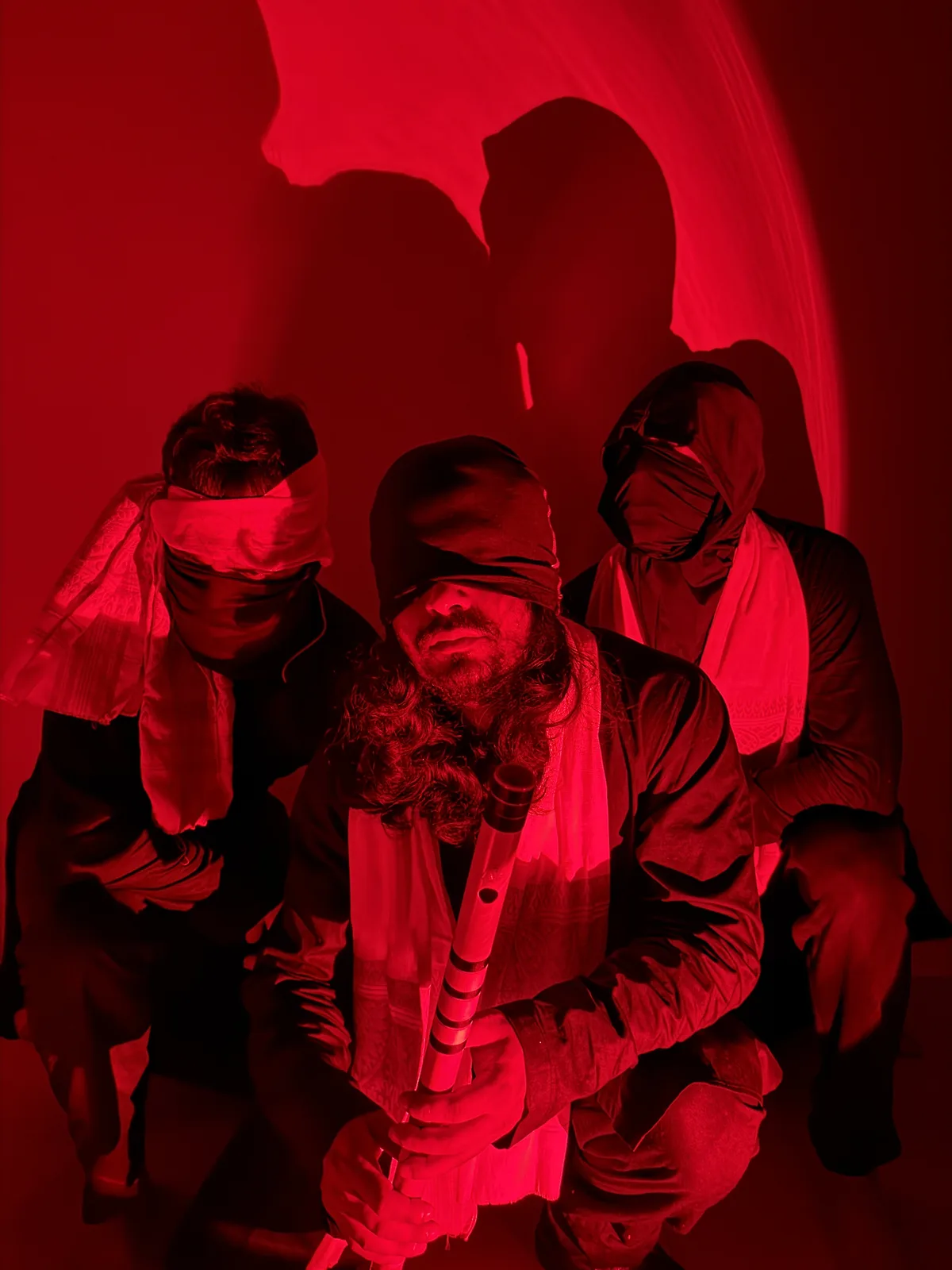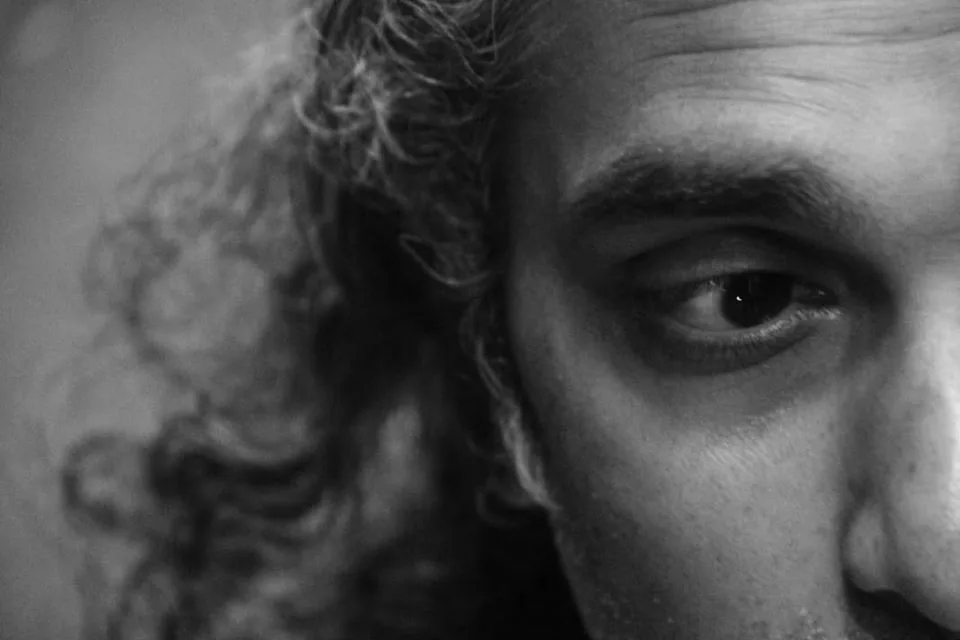It takes immense dedication to produce as much creative output as DRAAMA has over his many years of being active. Shravan Chellappa, the man behind DRAAMA, has been cruising the indie music scene since 2002, when he started his journey as a DJ and producer under the moniker Ravana. In an industry that is chasing genres and labels more than ever before, DRAAMA has time and again taken up the responsibility of transmuting social issues into powerful music.
When one looks at his body of work, the diversity of influences is representative of his depth as an artist. When it comes to his artistry, he is inspired by the work of Muslimgauze and Dr. Das, which can be seen in his work. One his most well known releases is the EP, Ghalib, in which he takes vocal samples from Gulzar’s 1988 television serial on the poet and pairs them with dark and bass heavy soundscapes that together showcase the underlying grunge of Ghalib’s poetry, something that artists rarely ever do. Of his new avatar, DRAAMA, he says “Since 2002 I have been DJing with this moniker (Ravana) and later as a music producer. But you know how it is when one starts to identify with things for way too long so much so that it seems to feel real. So as a counter to Ravana I changed the name to Raama initially, from an antagonist to protagonist but realised soon enough the patterns the mind identifies. So the collective of my own drama in my own head and the drama around the world made me keep the name DRAAMA.
This couplet from Ghalib sums it up
‘bāzīcha -e- atfāl hai duniyā mire aage
hotā hai shab-o-roz tamāshā mere aage’
The poet says that this world (world in sense of its struggles and joys) in front of me is just a playground of children and nothing more. Every day there is a spectacle (this world and its ways being one circus engaging everyone). Ghalib in his brooding thoughts, makes a mockery of seemingly complex interplay of lives and situations. In a way, he shows a disdain for this world around us and for those who seem to be so involved/caught up with it they forget that this world is just a filament in the grand scheme of things. To him these concerns are childish and not worthy of too much thought.”
Apart from pop culture, he continually draws from the tumultuous political landscape of the country to produce protest songs and revolutionary music. In February 2020, as riots tore across North East Delhi, while the country watched the hugely publicised meeting of two world leaders in Ahmedabad, many of us were shocked out of our comfortable slumbers. NGOs, health professionals and humans with a conscience, dove in to help in whatever way they could. DRAAMA, once again, took up the mantle of producing socially driven music under the album “Gangs of New Delhi”.

[bandcamp width=350 height=753 album=4063136399 size=large bgcol=ffffff linkcol=0687f5]
Across his monikers, he produces dub heavy music, but that hasn’t stopped him from experimenting with techno, lo-fi and other genres. On being asked about where he sees himself in this world of genres, he says music for him is life. “I consider myself as a musical outcast and dislike being a part of any group. Being an artist this attitude is not a good attitude to keep for survival. But then for me music is life and not a means for survival. It’s been tough for the organisers to fill me in their scheme of things for I produce music which is laced in politics and not ear friendly or club friendly. But the world finds solace in groups, castes, crowds for their well being and keeping the system running.”
The album doesn’t stray from DRAAMA’s usual musical signature. It is dark, bass heavy and it will move you to reflect on questions you did not know you had. Listening through the album, what strikes is the ease with which DRAAMA marries the heavy basslines to other elements like snares, percussions and vocals. The second track on the album is “Underbelly: Making of a Pogrom” replete with folk instruments like the drum and the chants of “Om Shaanti Shaanti”. Each track is named after an element of the riots or those that led to it. In the album he alludes to the Ayodhya verdict with his track Temple Site and Honour Killings in Tamil Nadu, poignantly pointing out that these riots are not a stand alone event rather a step towards a much bigger cleansing and takeover by fascism. It is interesting to note that while the album deals with something as tragic as the North East Delhi riots, it doesn’t descend down the sound of tragedy but chooses to bring to front the underlying sinister roots of it all. The last two tracks in the album, Lockdown: Emergency State and A Fascist, are more snare heavy, fast moving tracks yet the darkest in their ambience.
While it is not possible to delve into why he chooses to be influenced by politics for his art, it is interesting to ponder on what he thinks about music’s power in driving social change.
“We have always associated music with lyrics / poetry as a whole where poetry does the talking part and music is just taken as an extension. Words still hold / covers a huge area for conveying a message but silence is as powerful as words themselves. Having said that I am reminded of the story of the Pied Piper of Hamelin. I think music has been used to unite the population that’s why we have national anthems and songs to egg a jilted population to move on. It is the most simple way to brainwash as well to unite the mind.”
He ends with reiterating what we all know to be true, “One good thing about music, when it hits you you feel no pain – Bob Marley”





























